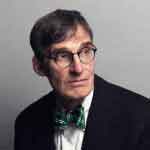Evergrande Is a Systemic Risk But Inflation Is Biggest Risk
Jim Grant

Among Jim Grant’s many claims to fame, we can add being one of the first to warn of troubles for Evergrande and China’s real-estate development model all the way back in 2017.
Now, five years later, Mr. Grant, creator and editor of the esteemed Grant’s Interest Rate Observer, is sharing his thoughts on what the unraveling of Evergrande means moving forward in a wide ranging interview with Wealthtrack’s Consuelo Mack.
Some excerpts from Jim Grant on Evergrande and China:
“The ambition was to build apartment buildings, many of which would remain unoccupied. They were for speculative purposes. They were not dwellings. The stock resembled, as we imagined, the Bank of the United States from 1930. That one didn’t do well, or the airship Hindenburg, or some looming disaster. Needless to say this was not the time to have said that (in 2017)…”
“Evergrande was characteristic of the Chinese economy broadly. The Chinese economy is enormously levered… Chinese banking assets represent something like 53% of the… estimate for world GDP, not Chinese GDP… Slightly more than half of world GDP. This is right now. (Evergrande) seemed like the perfect model for what’s wrong with China…”
“Something like 22% of Chinese real-estate is unoccupied… The Chinese economy to an important extent is driven by real-estate speculation. Local government finance earns much of its tax take on land sales. Evergrande… is a thing in and of itself and it is a symbol beside and both are worrisome…”
“I am in the ‘greater ramifications’ camp… (Evergrande) speaks to the real-estate development model that is at the center of the second largest economy in the world. President Xi, the eternal president of now the People’s Republic of China, is lowering the boom on enterprise broadly in China and finance particularly…”
On inflation:
“Bond yields have been falling for 40 years and the dollar has been increasingly plentiful… What characterizes finance in this country and broadly the world over is a lot of paper money a lot of liberality in lending and borrowing it and interest rates that are so tiny that it seems that one could accumulate debt with little to no worry… It is such an interesting and paradoxical fact that the more debt we have seen the ‘more better’ it has become for the bond holders…”
“The underlying moral problem with inflation is something for nothing. It is a form of theft, a form of unlegislated taxation… House prices are up 18% year-over-year. How can that not be inflation? …Inflation is the greatest single risk that viewers of Wealth Track confront and it’s not just that they’re going to be skinned alive at the grocery store. It’s that interest rates are a key determinant of the valuation of every single earning asset… They are the critical prices in capitalism and they have been suppressed… by central banks actions. So to an important degree, the value of everything in the portfolio of your viewers hangs by the thread of the lowest interest rates in 4,000 years, rates which are not anything but the product of central bank manipulation to the downside. Now what changes the structure of rates? What lifts them could be… an inflation that persists, that frightens the Fed… and they start to move rates up and then stock prices fall and they say ‘Uhhh.’ The Fed has a very low threshold of financial pain. So what then? Rising rates and a falling stock market, this is a whole new panorama of possibilities…”
Indeed, “So what then?” is truly the pressing question as exactly that scenario, rising rates and falling stocks, is starting to play out.
Would you like to be notified when we publish a new article on The Sounding Line? Click here to subscribe for free.
 James "Jim" Grant (born 26 July 1946)[1] is an American writer and publisher. The founder of Grant's Interest Rate Observer, a twice-monthly journal of the financial markets, he is the author of Money of the Mind (1992), The Trouble with Prosperity (1996), John Adams: Party of One (2005), Mr. Speaker: The Life and Times of Thomas B. Reed, the Man Who Broke the Filibuster (2011), and The Forgotten Depression (2014) among other works. His most recent publication is Bagehot: The Life and Times of the Greatest Victorian (2019), a biography of the brilliant and influential English banker, economic and political writer, and editor of the Economist, whose ideas about central banking informed the U.S. Federal Reserve's response to the Global Financial Crisis of 2007-09. James "Jim" Grant (born 26 July 1946)[1] is an American writer and publisher. The founder of Grant's Interest Rate Observer, a twice-monthly journal of the financial markets, he is the author of Money of the Mind (1992), The Trouble with Prosperity (1996), John Adams: Party of One (2005), Mr. Speaker: The Life and Times of Thomas B. Reed, the Man Who Broke the Filibuster (2011), and The Forgotten Depression (2014) among other works. His most recent publication is Bagehot: The Life and Times of the Greatest Victorian (2019), a biography of the brilliant and influential English banker, economic and political writer, and editor of the Economist, whose ideas about central banking informed the U.S. Federal Reserve's response to the Global Financial Crisis of 2007-09.
thesoundingline.com
| 



